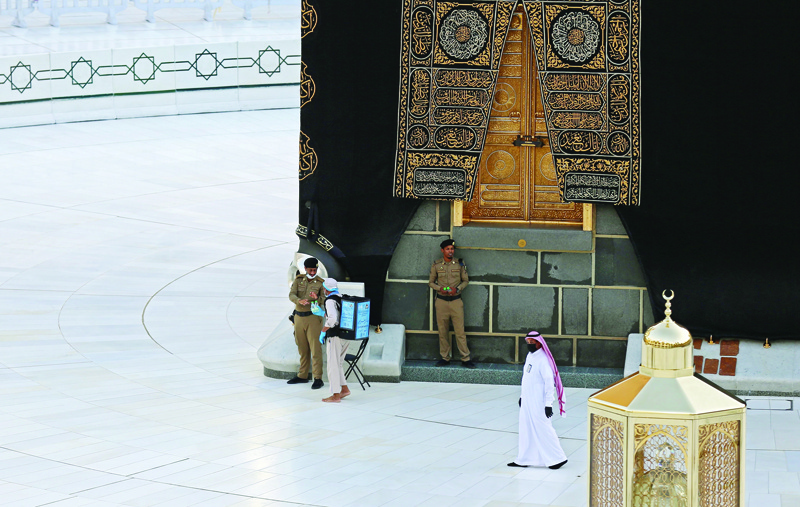
JAKARTA: It is a Ramadan like never before for Muslims across Asia as mosques that would normally be packed for prayers are deserted and in some places locked up as governments enforced measures to stem the spread of the novel coronavirus. At Indonesia's main Istiqlal mosque, the biggest in Southeast Asia, the call to evening Maghib prayers and a message asking people to pray at home echo in the empty hall - a stark contrast to last year when thousands thronged in to pray.
Indonesia, the world's most populous Muslim country, has confirmed 8,882 cases of the coronavirus and at least 743 people have died. In Dhaka, the capital of Bangladesh, the gates of the Mayor Mohammad Hanif Jame Mosque were padlocked. In the Pakistani city of Karachi, police patrolled outside the Faizan-e-Madina, one of the city's biggest mosques, to stop worshippers from gathering and no one was performing Taraweeh, a special prayer during Ramadan.
Pakistan has reported more than 11,000 cases of the coronavirus, including 237 deaths. In India, only five worshippers joined an evening prayer on the first day of Ramadan in New Delhi's imposing Jama Masjid as the call to prayers drifted out over the deserted courtyard. Last year, worshippers spilled onto the ornate front terrace of the red-brick 17th century mosque.
India has reported 26,496 cases of the coronavirus and 824 deaths. Health experts have warned that the rapid spread of the coronavirus in poor, densely populated parts of South Asia - home to a fifth of the world's population - could easily overwhelm weak public health systems.
Iran to reopen mosques
Meanwhile, Iran plans to reopen mosques in parts of the country that have been consistently free of the coronavirus outbreak as restrictions on Iranians gradually ease, President Hassan Rouhani said on Sunday. Iran, one of the Middle Eastern countries hardest hit by the pandemic, will be divided up into white, yellow and red regions based on the number of infections and deaths, Rouhani said, according to the presidency's website.
Activities in each region will be restricted accordingly, so an area that has been consistently free of infections or deaths will be labeled white and mosques could be reopened and Friday prayers resumed, Rouhani said. He said the label given to any region in the Islamic Republic could change and he did not specify when the color-coding program would come into force.- Agencies










